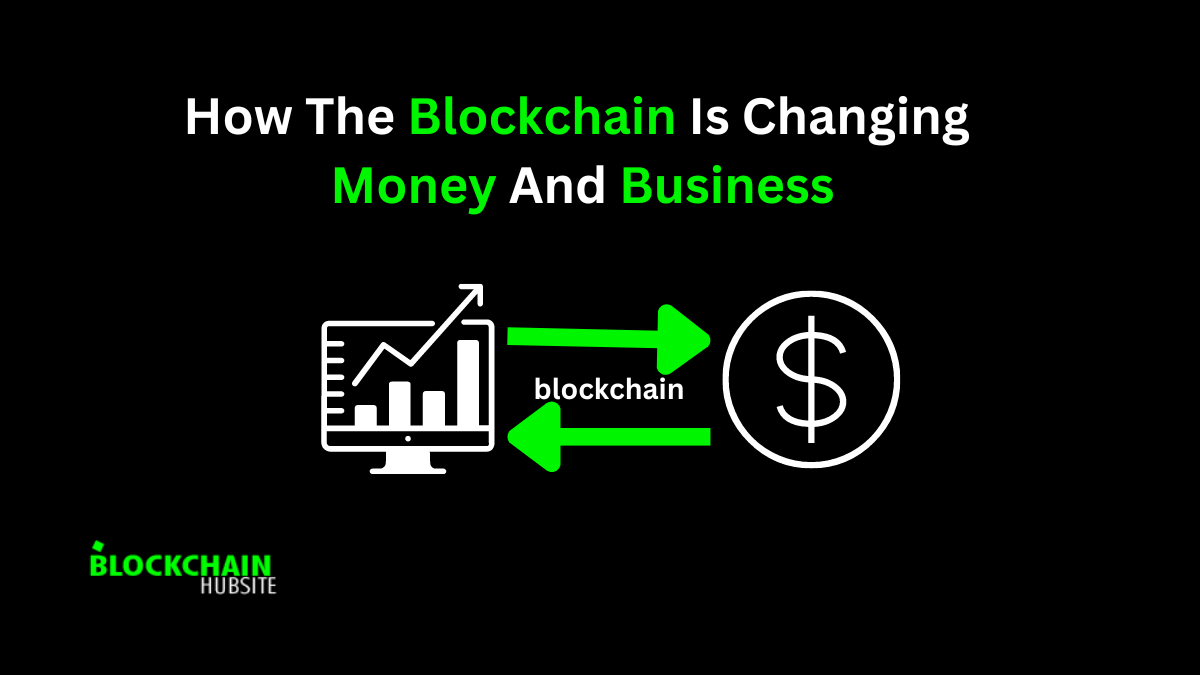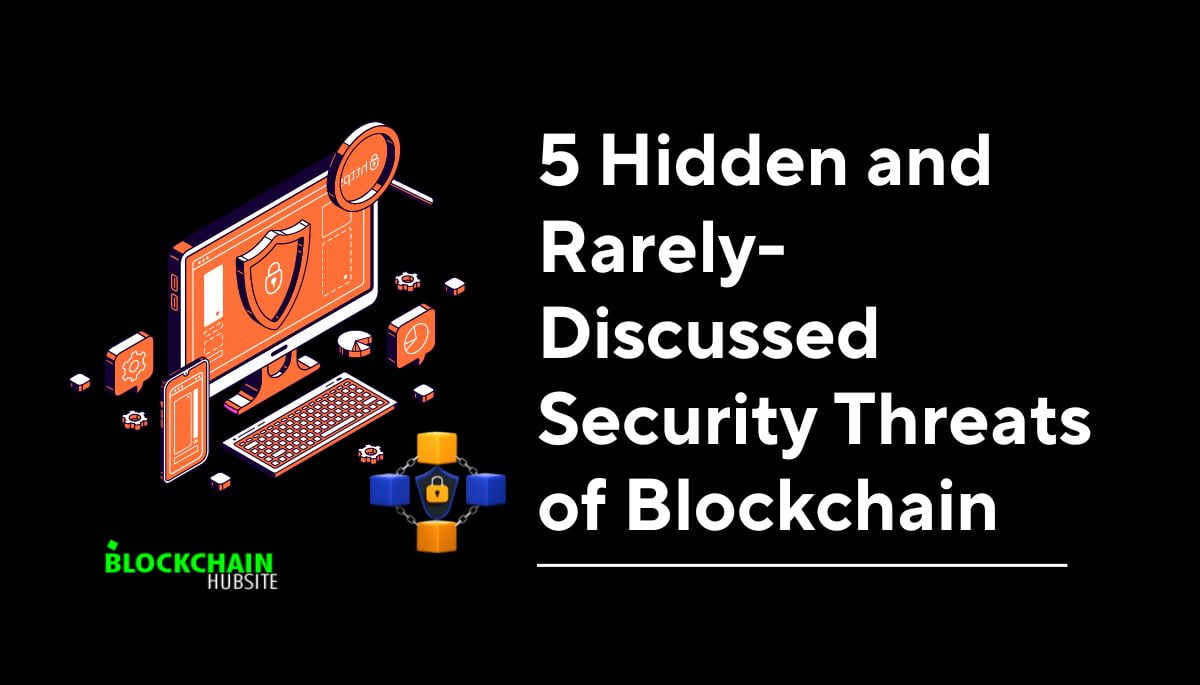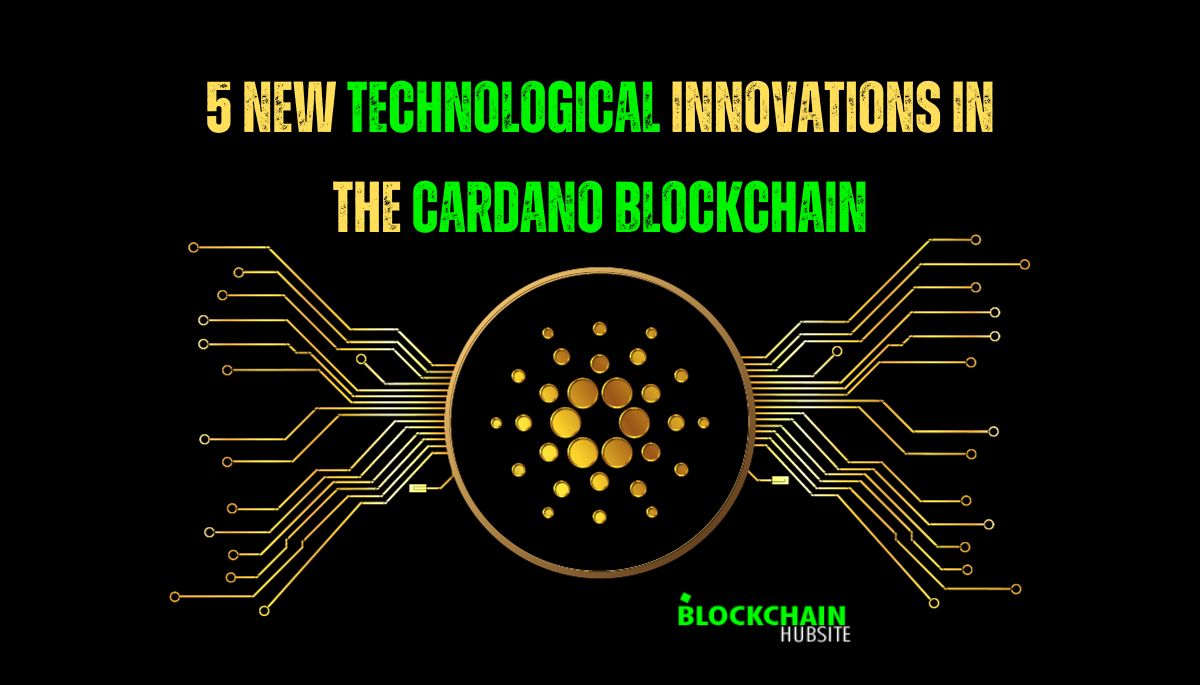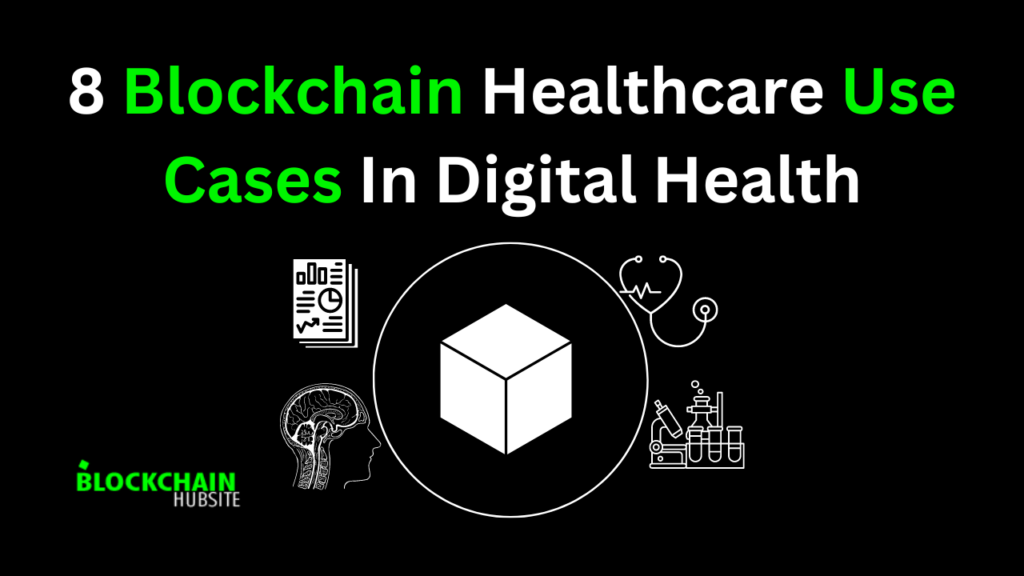
Table of Contents
Blockchain is described as “THE NEW INTERNET” and is driving Transition for businesses in Various fields, specifically financial services.
By allowing people to quickly and easily share data, the “Internet of information” revolutionized access to knowledge. To share a document online, you send a copy while keeping the original. Unfortunately, this system isn’t suitable for sharing assets; if someone sends you $100, they mustn’t keep a second copy of the cash. Currently, people deal with this “double-spend” issue through intermediaries like banks, credit card companies, and governments, all of which have the following flaws: They are expensive, slow, elitist, centralized, and vulnerable to hackers.
Blockchain has become a hype in recent years, which is not surprising given how it changes the dynamics of many industries. This technology still needs to be widely understood because it does more than support bitcoins. As more people learn how to make money with blockchain, the world of transactions is experiencing a significant shift. Blockchain technology is predicted to completely change how we conduct business, not just in the banking sector but also in fields like healthcare, government, and retail.
Blockchain in a Nutshell

Let’s begin with a quick overview of blockchain and its benefits. Taking inspiration from the Financial Times
“A blockchain is a shared digital ledger that allows transactions to be recorded and verified electronically over a network of computers without a central ledger. Cryptography is used to protect the data from fraud or hackers.”
How Can Blockchain Benefit Businesses?

There are multiple places where the data is kept. All network users can access historical data, confirm new transactions, and claim data ownership.
Transparency
It performs as a peer-to-peer network. The transactions occur in agreement with the involved parties and are publicly stated. Additionally, it is reliable and practical.
Digital and Automated Records
The transactions are automated and digital. A business organization can more easily streamline operations while reducing back on paper-based transactions.
Automated Validation and Verification

Blockchain employs consensus protocols to record data and validates transactions automatically. It is independent of a single authority to make the decisions.
Improved Efficiency and Speed
Because blockchain transactions do not require intermediaries, they can be completed more quickly. Automation in a secure and stable environment eliminates redundant operational processes.
Customization
Even though a blockchain is a distributed ledger with an unchangeable chain of data, we can build a unique blockchain network according to business logic. We can use it in various business sectors based on what is required.
Security
Blockchain is highly secure due to its digital signature and encryption. It is tamper-proof, convenient, and unchangeable. The data is protected from hackers because it is stored in multiple locations.
Industries Blockchain could Transform
Safe and Secure transactions
Everyone wants to protect and secure their financial assets. Many businesses now have a solution thanks to blockchain. Banking services and the execution of financial services will be more swift and efficient. Costs will be lower, and more importantly, the documentation at every stage will allow us to keep an accurate record of our transactions.
Many banks have taken advantage of these significant advantages. Almost 90 banks are now using blockchain solutions to improve banking security and significantly reduce infrastructure and staff numbers costs. The beauty of blockchain technology is that there is transparency in transactions, and the probability of errors is lower as human intervention or control is reduced.
Management of the Supply Chain

The supply chain is constantly troubled by issues such as a lack of transparency, ineffective management, increased risks due to an extended value chain, sudden demand changes, and theft. As blockchain is highly accurate, it works well for supply chain management and tracking everything that comes in and goes out.
The system displays each product’s journey from the factory to the customer. Information about the product is always available, and if anything goes wrong with a product, consumable, or service, it is simple to track down the source of the problem.
Real Estate

Blockchain will make the process of buying a home more straightforward and quicker. And if you’ve ever bought a house, you’ll know that the process takes time and effort; it’s tedious, stressful, and exhausting. It takes the involvement of banks, lawyers, municipalities, and sometimes even the government to purchase a property, and the entire process is costly.
With blockchain, you eliminate the need for all intermediaries; only one version of legal documents is required, and it is 100 percent accurate. It is tamper-proof, reducing the possibility of fraud and significantly reducing paperwork.
Healthcare

Over time, your health information becomes fragmented, making tracking difficult. Blockchain addresses this issue by enhancing the tracking of your medical history.
This saves the doctors’ time and money because you don’t have to repeat tests, or if you’ve tried a medication before, you’ll know whether it works.
Any doctor who accesses your profile will have access to your complete, accurate medical history, including details about your allergies, family medical history, lifestyle choices, and anything else that might be useful in determining your diagnosis. The best part is that the information is easily accessible. Doctors no longer have to wait for files to be transferred from one medical office to another.
Media and Entertainment

Media companies utilize blockchain projects to reduce fraud, safeguard their intellectual property, and significantly reduce costs. MGM studios have recently started using the Eluvio Content Fabric platform to convey video content to users directly, avoiding content delivery networks and providing products and services directly on the content.
Proving of identity

It can be challenging to prove our identity to the online community when it comes to the internet because anyone can assume the identity of another person. Blockchain is the perfect solution for businesses looking to avoid this threat.
Approximately 1.1 billion people worldwide are unable to prove their identity. This could be due to a variety of factors. For example, no registration at birth, loss of birth registration or certificates due to a natural disaster, or unaffordability to obtain a birth certificate. Sixty percent of people who do not have an official identity have a phone, so a blockchain-based mobile identity solution would be effective.
Since 2007, Estonia has used the blockchain as part of its national digital identity scheme. The system has proven to be incredibly effective because it only requires the ownership of digital signatures and does not require any paperwork.
It cannot be easy to prove ownership of any item without apple proof and other documents. Blockchain has also provided this solution to many businesses. You can easily record your transactions and items through blockchain and provide all purchase history to prove the item belongs to you. It is the most secure and accurate method of proving your ownership of assets.
Everledger is a technology company that assists various businesses in keeping track of their assets. They can achieve this by utilizing blockchain. For example, they can keep track of the sneakers being sold in the sneaker market by providing insights and keeping a record from the start to the final customer to ensure that the sneakers being sold are the original lebron james sneakers and not fake ones.
Initial coin offerings (ICO)

The ICOs are one of the most important things that are gaining the trust of many businesspeople. This is a good way for businesses to raise funds without going public on the stock exchange.
Using blockchain, these ICOs are mostly reserved for companies in the crypto industry, for which it is ideal that you have a good understanding of how crypto works as well as a digital currency. Most businesses use this to raise funds by filing a white paper with the company’s details and stating the amount and type of money the company will accept. How much of the funds will be reserved by the business’s founders, and how long the ICO campaign will last?
smart contracts

Is your company paying additional costs due to the extended supply chain and the need for a mediator to form a contract? With the help of smart contracts, which Nick Szabo first introduced, blockchain can eliminate this problem.
The role of the middleman has been made useless by smart contracts. This is because contracts enable you to automate, check, and self-execute your contracts.
This can help businesses save money and complete tasks in real-time.
Charge an electric car

RWE, a German utility company, was the first to install a blockchain-powered charging station in 2016. Since then, some of the world’s largest automotive manufacturers have shifted their focus toward developing blockchain-based incentive and data networks. For example, Mobi uses blockchain technology to make transportation more environmentally friendly.
If you have an electric charging station at your home, it will be more affordable and practical, bringing it closer to you. You could use blockchain technology to make your chargers available to others as a simple way to earn extra money.
Blockchain Connects Service Directly with Consumers
You may have thought that the blockchain would eliminate many jobs. Still, as Vitalik Buterin, co-founder of Ethereum and Bitcoin, noted, most technologies tend to automate workers who perform menial tasks in the background.
Instead of putting the taxi driver out of work, blockchains put Uber out of work and allow taxi drivers to work directly with customers.
Pay your Parking Fees

This benefit may not change the world, but it will make our lives easier.
In 2014, a New York City Councilman proposed that authorities allow bitcoin to be used to pay parking fines. It’s still being determined whether that happened.
But in 2017, South Africa would officially permit using bitcoin to pay fines.
Governments could use blockchain technology to regulate all aspects of transportation. They could regulate street parking, unpaid fines, unroadworthy vehicles, and expired licenses. There would be fewer car accidents, and people would be safer on the roads.
Blockchain in Government
Public and Private Record Keeping on Blockchain
Taxes, identification documents, real estate contracts, birth and death certificates, and trillions of public records that have been archived must all be kept track of by the federal and state governments at all times. Blockchain holds great promise for several organizations searching for a method to secure and assemble those documents.
A data breach that exposed the personal data of about two million people occurred in 2022 at Shields Health Care Group, a Massachusetts-based healthcare organization. The breach led to the theft of identities, billing data, and medical records. The vulnerability of government and large bank computers is a favorite target for identity thieves who want to access banking, social security, and passport data.
A malicious email sent to an unwary employee can potentially expose thousands, if not millions, of Americans to identity fraud. Through secure identity encryption, blockchain technology can help the government stop hackers.
Any government employee or an ordinary person can quickly and safely locate the missing piece of data using the blockchain’s private encryption and unique cryptographic identifiers.
How will blockchain technology impact the collection of payroll tax?

Smart contracts can automate the tax collection by comparing tax information with income transactions and computing tax and social security deductions. A blockchain-based system automatically transfers net salaries and tax payments to the appropriate recipients. Tax collection is made efficient, quick, and secure through coordinated automation.
How will blockchain impact central banking?
In contrast to settlement at the end of each day, real-time gross settlement is the ongoing process of recording interbank payments in central bank records. Central banks can process RTGS faster with greater security thanks to blockchain’s ability to increase transaction volume and network resilience significantly.
Blockchains can be used for electronic voting or e-voting
Every democratic government faces the challenge of counting votes in a timely, secure, and transparent manner. By enhancing immutability and transparency during the collation process, blockchain has been shown to support voting (when votes from individual polling stations must be accumulated with votes from other polling stations to form an agreement for a given region).
Concluding Remarks
Blockchain technology is a game-changing concept revolutionizing our thoughts on money and business. Blockchain can disrupt traditional financial systems and create a more inclusive economy that benefits everyone due to its decentralized, transparent, and secure nature.
The rise of cryptocurrencies and the application of blockchain technology in businesses, such as supply chain management, voting systems, and digital identity verification, are just a few examples of how blockchain is changing the world as we know it.
However, despite its enormous potential, blockchain is still in its early stages of development, and several challenges, such as scalability, interoperability, and regulatory frameworks, must be addressed.
FAQs
1. How is blockchain changing finance?
Blockchain technology transforms the finance industry by allowing immutable, secure, and transparent financial transactions. It can lower costs, boost efficiency, and increase trust in the financial system.
2. Why is blockchain the future of finance?
Blockchain technology is the financial technology of the future because it provides a secure, immutable, and transparent platform for financial transactions.
This is especially helpful when accurate and unbreakable transaction records are required. Blockchains, for example, can be used to record and settle trades, handle finances, pay bills, and even create secure smart contracts between multiple parties.
3. How does blockchain save money?
A blockchain system may help businesses save money by lowering transaction costs. Payments in cryptocurrency are processed on a decentralized system governed by peer-to-peer networks, eliminating the need for centralized authentication.
4. Will blockchain replace banks?
While blockchain technology has the potential to replace banks partially, it is unlikely to replace them entirely shortly. Blockchain can offer increased security, reduced fees, and faster transaction speeds, but it also has some disadvantages, like a finite supply of coins and a lack of legal recognition.
5. How does blockchain prevent money laundering?
Blockchain technology has built-in features that can stop money laundering. Every blockchain transaction creates a permanent and immutable digital record that can be used to trace the source of funds easily.
6. How many blockchains are there today?
It is difficult to say how many blockchains exist today because new ones are constantly being introduced. However, it is estimated that thousands of blockchains exist today. These networks range from small private networks to large public networks like Bitcoin, Ethereum, and other cryptocurrency networks. A few bigger businesses, including IBM and Microsoft, have also developed private blockchains.




